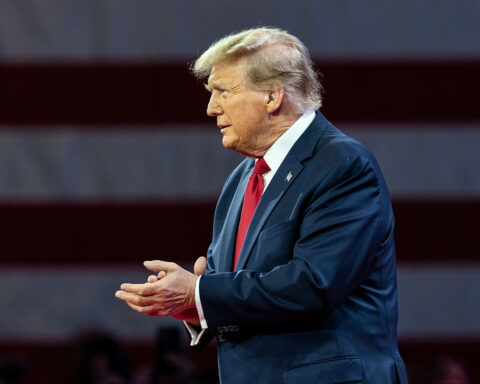Artificial Intelligence (AI) has assumed a pivotal role in the conversations among world leaders and corporate titans attending the annual World Economic Forum in Davos. In an era where remarkable strides in generative AI have garnered substantial attention, both the potential and the associated risks of this technology are commanding center stage at this prestigious gathering.
One of the highlights of this year’s Davos meeting was the debut of Sam Altman, the CEO of OpenAI, the company behind ChatGPT. Altman’s appearance on stage was met with enthusiastic applause from the audience. Additionally, the presence of Microsoft CEO Satya Nadella underscored the increasing importance of AI on a global scale. However, questions surrounding OpenAI’s governance, stemming from Altman’s unexpected departure and return last year, continue to linger and add an air of uncertainty to the proceedings.
Global Leaders Chart Their Course in the World of AI
From China to Europe, leaders are staking their claims in the realm of AI, acknowledging its profound implications. The European Union has taken the lead in establishing comprehensive AI regulations, while China’s Premier Li Qiang emphasized the critical need to harness AI’s power for the betterment of humanity. The international community is grappling with the intricate task of regulating AI, particularly concerning issues such as AI-fueled misinformation and disinformation, which pose a significant threat to democratic processes.
AI’s Dual Role: Shaping Labor and Fostering Diversity in Davos
AI, often characterized as a “double-edged sword,” possesses the capacity to both revolutionize and disrupt. Business leaders anticipate that AI will bring about the automation of routine tasks and enable the creation of more advanced job roles. Nevertheless, concerns persist regarding potential job displacement, with a recent survey revealing that 14% of CEOs anticipate staff reductions due to the proliferation of generative AI. IBM CEO Arvind Krishna contends that embracing AI can substantially enhance productivity across various sectors.
The Davos Promenade was adorned with the ubiquitous letters “AI,” reflecting the technology’s prominence in the ongoing discussions. Inside the conference center, AI-generated artwork and depictions of wildlife showcased the technology’s creative potential. In the AI House, technical sessions delved into the intricacies of AI. Conversations also emphasized the crucial role of diversity in AI development, ensuring that it caters to a global audience with diverse languages, cultures, and values.
Navigating the AI Frontier at Davos
AI has taken center stage at the World Economic Forum’s annual meeting in Davos, captivating the attention of leaders from around the world. While the potential for AI to reshape industries and drive economic growth is undeniable, concerns surrounding regulation, job displacement, and governance remain at the forefront of discussions.
As the world grapples with the responsible development and utilization of AI, it is evident that this technology will continue to mold the future of work, economies, and societies on a global scale.







